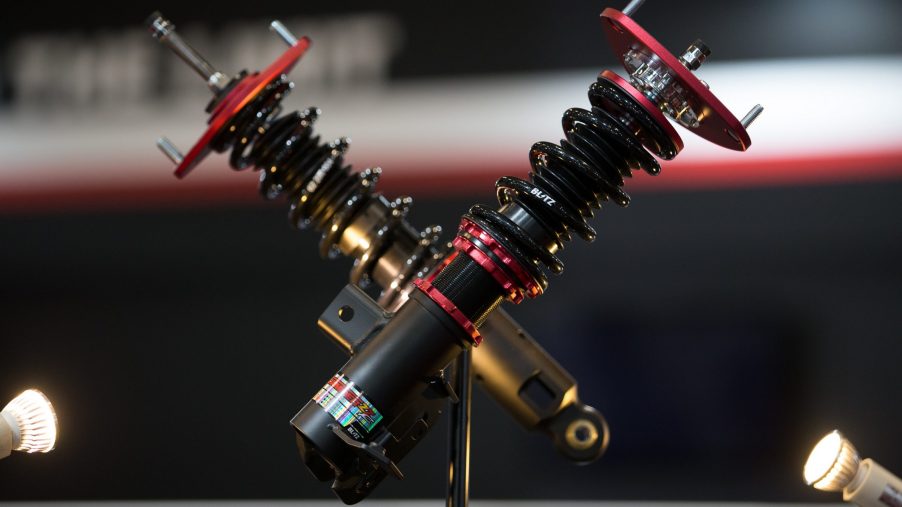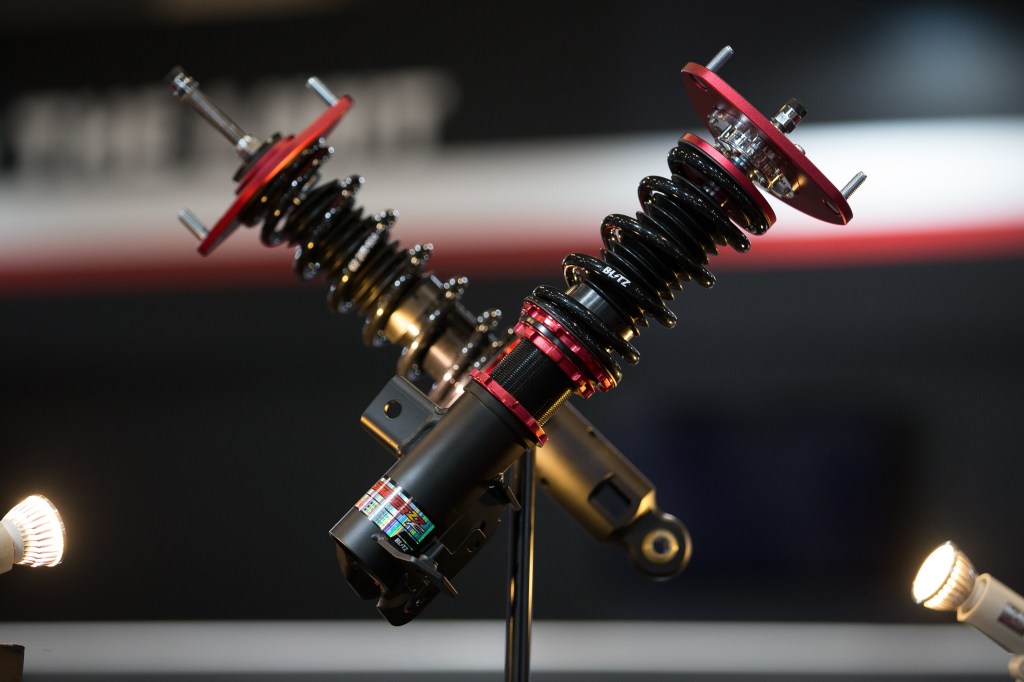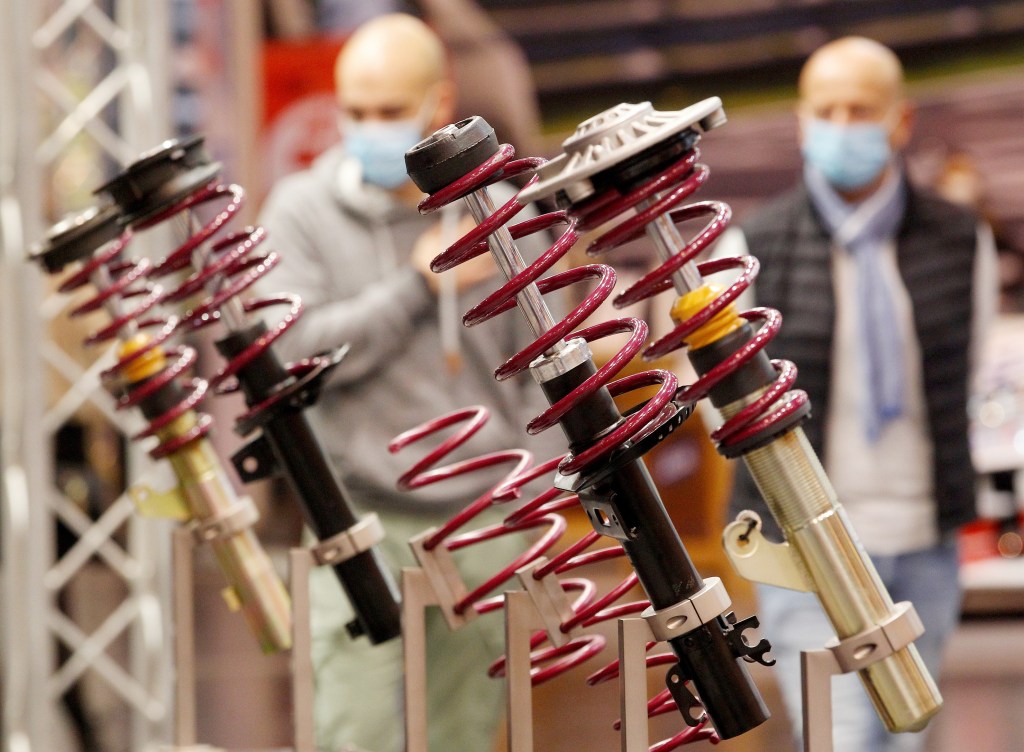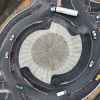
Should You Replace Your Car’s Shock Absorbers With Coilovers?
Coilovers vs. shock absorbers article highlights:
- Coilovers contain shock absorbers, but they are not ‘just’ shocks
- They function similarly to struts but provide more adjustability for the springs and dampers
- Quality coilover kits are pricey, and their benefits are typically best experienced in spirited street and track driving scenarios
For as many beneficial car modifications as there are, there are at least that many that do more harm than good. That’s especially true if they’re not done properly. And all too often, owners modify their suspension in hopes of upgrading their ride only to ruin it. However, not all suspension mods are necessarily bad, and some do genuinely improve your car’s performance. But is swapping out worn shock absorbers for a new set of coilovers a good idea, or a bad one?
What makes coilovers different from shock absorbers and struts?

At first glance, coilovers look identical to typical shock absorbers. But they’re not, although the former contains the latter. Arguably, coilovers more resemble struts than shocks. And if this sounds confusing, don’t worry, here’s how it works.
What most people call the ‘shock’ is basically a tube with a piston/plunger suspended in a mix of fluid and gas. Yet despite its name, a shock absorber doesn’t absorb shocks from road impacts. Instead, it dampens the motion of what actually absorbs those bumps: the metal springs. Hence why shock absorbers are technically called ‘dampers.’
In some cars, especially in the rear, shock absorbers and springs are mounted next to each other. But in others, particularly in front, they’re combined into one unit, with the spring atop the damper. That’s what many people call ‘shock absorbers.’ Struts have this configuration, but they do more than dampen impacts. They’re a structural part of your car’s steering system. Furthermore, while bare shock absorbers dampen impacts and acceleration forces, struts also support your car’s weight, Car Bibles explains.
Now we come to coilovers. Because they’re also a one-piece combo of damper and spring, they’re sometimes confused for struts. In addition, some cars, like the European Focus ST, even offer them as factory options. However, there’s one significant difference between a coilover and strut: the spring and often the damper are adjustable. And that’s huge both from a performance and an appearance standpoint.
Are coilovers better than conventional shock absorbers?

Although it’s often done purely for looks, there are performance-related reasons why people lower their cars. All too often, though, they go the cheap route and just stick lowering springs onto factory shock absorbers. While that does lower the ride height, it also ruins the ride quality and messes with the suspension geometry. So now, your car doesn’t handle as it did before.
Here’s where coilovers come into their own. Much like you adjust the preload on a motorcycle’s suspension, you can adjust the preload and travel on a coilover’s spring. But because the assembly is designed with this in mind, doing so doesn’t negatively affect suspension geometry. Therefore, you get the benefits of a lower ride height—including a lower center of gravity—without the handling penalties.
And because quality coilovers usually have adjustable rebound and compression, you can tweak your car’s handling to a greater degree than with a set of lowering springs. Some coilover kits even include camber/caster plates to further modify handling and steering. Drivers often report greater levels of feedback after installing coilovers, too, Road & Track says.
However, coilovers aren’t necessarily a win-win over the factory shock absorbers and struts. They do lower the ride height, so you risk scraping body parts over speed bumps and driveways. And cheap sets don’t offer much damper adjustability, so your ride quality might suffer. Though that’s also true for coilovers designed for performance rather than comfort, Car Bibles notes.
How much does a good set of coilovers cost?
The other downside of coilovers is that the best ones cost a lot. A set of lowering springs for my 2013 500 Abarth, for example, costs about $290. But a Bilstein coilover kit is $1000. And a high-end set of KW V3 coilovers is almost $2300.
To be fair, you do get what you pay for with suspension components, coilovers or otherwise. While the $2300 KW units are arguably overkill outside of a track build, even the Bilstein ones offer a large degree of adjustability. And having owned an NB Miata with Bilstein shocks, I can confirm that the ride was surprisingly compliant.
However, you also have to factor in the cost of installing those coilovers. You can technically do this at home, provided you have the right tools. Because some kits require reusing nuts and bolts, this usually means buying or renting a spring compressor. If you don’t, the spring on your strut assembly could fly off and injure you, someone nearby, and/or your car.
Also, because installing coilovers means unclipping and otherwise messing with the suspension, you have to get an alignment afterward. Otherwise, instead of improving your handling, the upgrade could just make things worse.
Are they worth installing?
So, is it worth putting coilovers on your car? That depends on several factors.
First, do you need to replace your current shocks and struts? Second, are you looking to improve your car’s handling? And third, do you have the money to pay for a quality kit?
Installed and adjusted correctly, a good set of coilovers can genuinely improve your car’s performance. But again, you get what you pay for. And if you’re not carving corners on the weekends or chasing lap times, they’re not strictly necessary. You’d likely be fine just replacing the shocks, springs, and bushings with fresh ones.
If you’re looking to lower your car, though, these are so much better than a cheap set of lowering springs.
Follow more updates from MotorBiscuit on our Facebook page.


